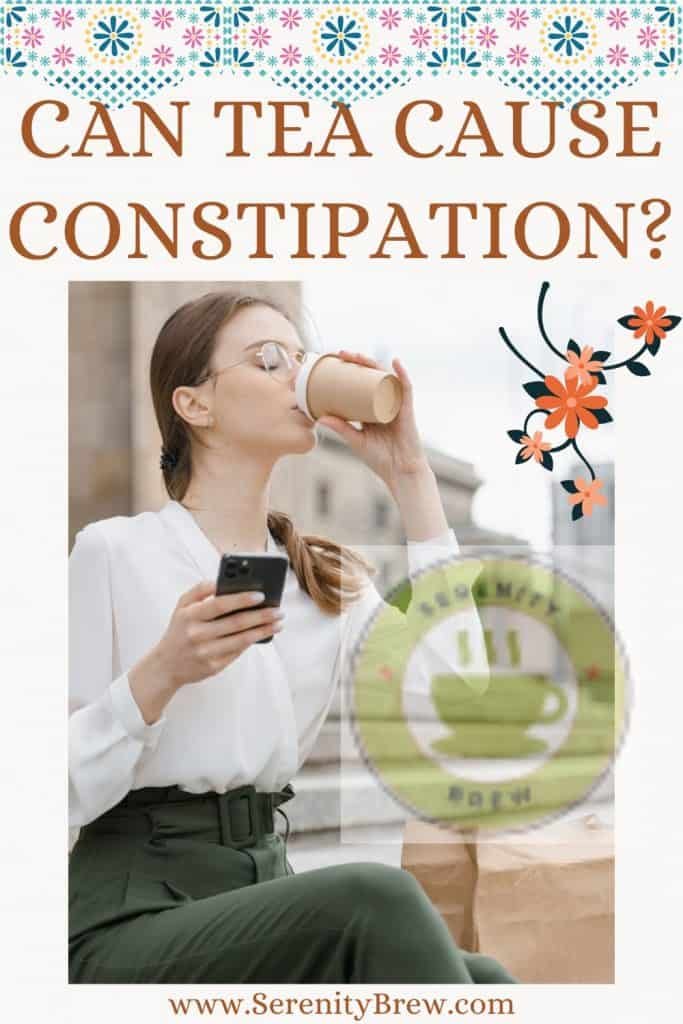
While drinking tea is known to have many health benefits, questions often arise about possible adverse effects of consuming too much. A relatively common one is if the tea constipates.
The truth is that when browsing the Internet you will find all kinds of theories that arouse uncertainty. At Infusionismo, we wanted to answer this question and provide you with all the information based on science so that you can decide which tea is best for you and how many cups you can drink per day.
What is constipation?
Before going fully into the subject, it is convenient to determine what exactly constipation is, since, sometimes, we have wrong ideas about it.
The constipation is considered when a person has bowel movements three or fewer times per week. The stools can be hard, although this is not always the case.
It is a fairly common annoyance; in fact, it is estimated that around 15% of the population suffers from chronic constipation. The main affected are women, closely followed by adults older than 65 years.
Causes of constipation
The reality is that constipation is not a disease but, rather, a symptom of something that bothers the body. In general, the main cause of constipation is found in an inadequate diet.
However, it should also be noted that some medications, such as those used to control pain, can cause constipation. The same thing happens with laxatives when they are used in excess.
On the other hand, particular situations in life such as pregnancy are triggers of this situation, as well as a sedentary life, the passing of the years and diseases such as lupus, diabetes, cardiovascular accidents and multiple sclerosis.
Finally, it should be noted that dehydration is another factor to consider: by drinking few liquids, the stool hardens and, therefore, evacuation is difficult. Also, changes in diet can be a reason to take into account.
If you suffer from constipation on a regular basis, you should determine its cause with the help of a doctor.
Does tea constipate?
The data available to date are not conclusive. The theophylline present in tea favored extracellular dehydration by favoring the absorption of liquids and, therefore, generated constipation.
However, these results occurred in people who, during the study period, drank only two liters of tea per day; that is to say that the consumption was much higher than a normal and habitual intake.
On the other hand, tea contains theine, a stimulating substance that is equivalent to caffeine. Now, did you know that caffeine has a known diuretic effect? This means that drinking caffeinated beverages can cause you to go to the bathroom more and eliminate more fluids than usual. In this way, dehydration could occur which, as we saw, is a possible cause of constipation.
However, it is worth noting that the effect of tea varies from person to person and, in addition, the caffeine content is different from one type of tea to another.
In our ranking of the teas with the most theine we saw, for example, that black tea provides around 50 mg per cup (some varieties within black tea even more) while green tea contains between 25 and 29 mg/100 g and white tea less than 1 mg.
Bottom line: Different teas have different effects on the body. It is not possible to generalize and ensure that tea causes constipation since it depends on many factors ranging from the type of tea and the amount ingested per day to the personal characteristics of the person who drinks the infusion.
Can I drink tea if I am constipated?

As we pointed out in the previous point, everything depends on your personal conditions. Generally speaking, we would recommend moderating your overall consumption and drinking teas that are low in caffeine.
The best thing would be for you to opt for teas with a low concentration of theine, which would not generate an increase in diuresis with the consequent risk of dehydration.
If you are constipated, a recommended option is to switch to infusions for a while, which are totally free of caffeine and are a great way to hydrate. Another option would be to drink rooibos, a flavorful infusion that does not come from the Camellia sinensis plant.
In addition to following these recommendations and opting for low theine teas, we advise keeping your intake to a maximum of two cups per day if you are prone to constipation. And, of course, drink enough fluids to maintain optimal hydration.
Finally, we would like to share with you a list of the best infusions to go to the bathroom. We are sure that you will enjoy its flavor, in addition to benefiting from its laxative properties.
Note: if you suffer from chronic constipation or have pain, see your doctor. You may need to make changes to your usual diet. If the discomfort persists, the specialist may decide to carry out some studies to make sure that you do not suffer from a disease whose symptom is constipation.
